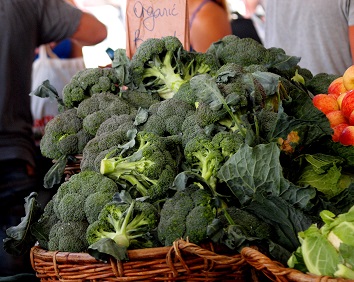|
Organic food has grown in popularity in recent years. Before the early 1900s, all food was organic. With the advent of food being industrialized, pesticides and fertilizers found their way into use in a big way. There are many reasons people may choose to eat organic food. These reasons can be related to environmental problems of conventional farming, treatment of animals and many others. Today I will only cover the health and cost issues with organic food. What are you paying for when buying organic? There are many factors that come into the cost of organic food. Mostly it is due to the increased labour needed to grow produce without the use of huge amounts of pesticides. Organic food is also produced on a smaller scale and is shipped in smaller quantities. The last factor involved is the simple ability of the term organic allowing some producers to raise the cost dramatically. What health benefit does organic food give me? Most research into organic fruit and vegetables has found that there is minimal difference in vitamin and mineral content of organic and conventionally grown food. The big difference between the two is what you are not getting, organic food has been found to have much lower amounts of pesticide residue. Many of these pesticides have been proven to be harmful to humans in a variety of ways. With all the exposure to chemicals that humans get, I personally choose to minimize this by eating organic foods when I can. Many food manufacturers have taken the word organic and now use it as a buzzword. If something is organic it does NOT necessarily mean it is any better for you. Take into account the whole food product and what it is made of. An organic packet of cookies is still a packet of cookies, you can still have a very unhealthy diet and be eating organic food. The cost effective way to eat organic Some foods naturally need less pesticide and fertilizer use in their growth. As a result foods vary in the amount of pesticide residue they will have on them. The Environmental working group publishes a list each year of the most and least contaminated conventionally grown foods. If you cannot afford it then think about buying some of the more hazardous vegetables organic and the rest conventional. If you can afford organic produce then there is no reason not to buy it. Here are the worst and best: Worst (Most pesticide residue) Apples Celery Sweet bell peppers Peaches Strawberries Nectarines Grapes Spinach Lettuce Cucumbers Blueberries Potatoes Kale Best (Least pesticide residue) Onions Sweet Corn Pineapples Avocado Cabbage Sweet peas Asparagus Mangoes Eggplant Kiwi Cantaloupe Sweet potatoes Grapefruit Watermelon Mushrooms How can I reduce my costs if I want to buy organic? Organic food sold in most supermarkets has a higher price than when sold at a farmers market in most cases. Often supermarket organic food is sold out of season and imported so while it may be organic, it is a lot older and costlier. The cheapest way to get good organic food is to buy it at a farmers market, look for online vendors that deliver boxes of organic food or go in together with a group of friends to buy in bulk to save money. So what is the take home message?
Eating fruits and vegetables of any kind is still better than the alternative of not eating any Thanks for reading everybody if you have any questions or comments please leave them below
2 Comments
Daniel Freeman
4/8/2014 01:43:27 pm
Great point Rob, washing produce does remove a good amount of pesticides, with modern supply chains its a good idea to wash all fruits and vegetables organic or not
Reply
Leave a Reply. |
Daniel FreemanI am a personal trainer and online health coach. I write these articles to help you improve your health and well-being Archives
November 2018
|


 RSS Feed
RSS Feed